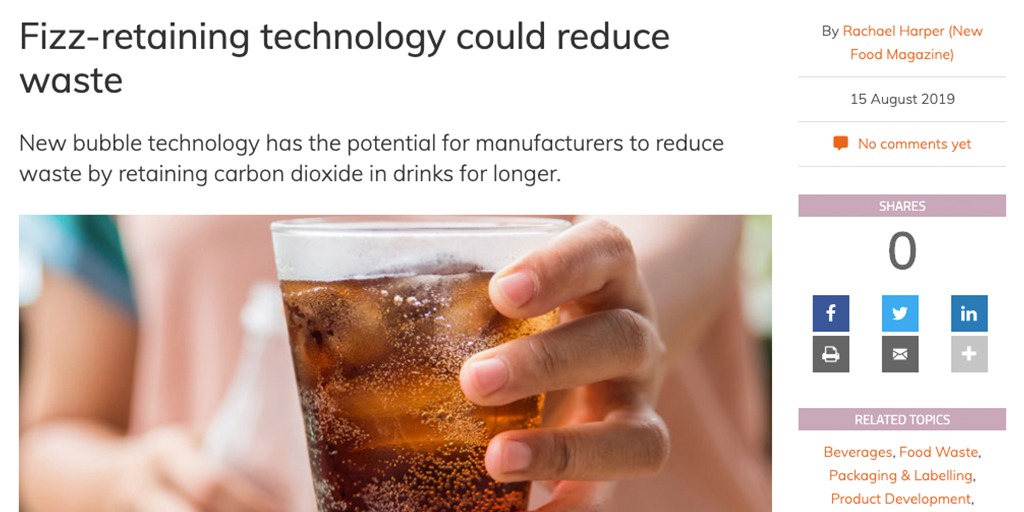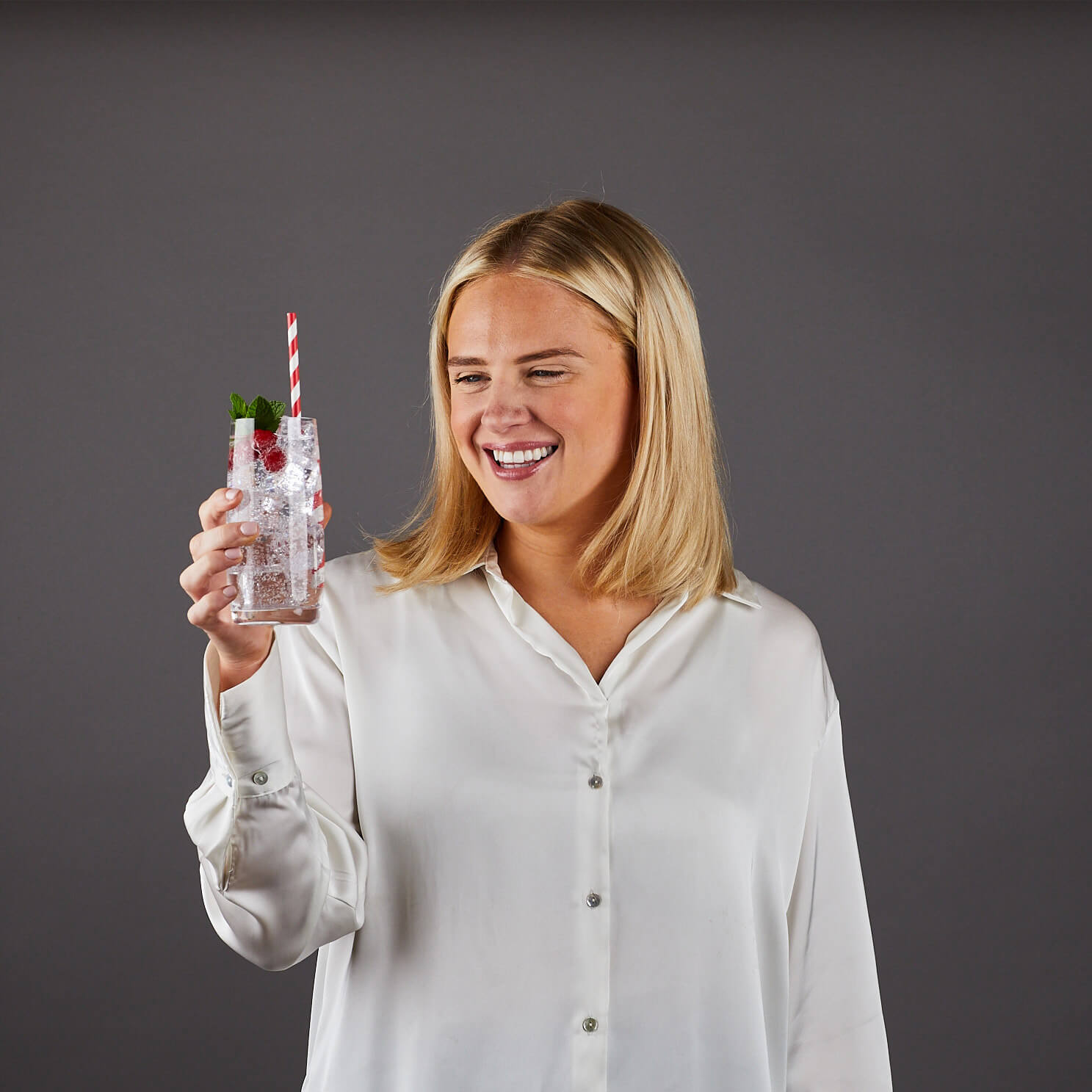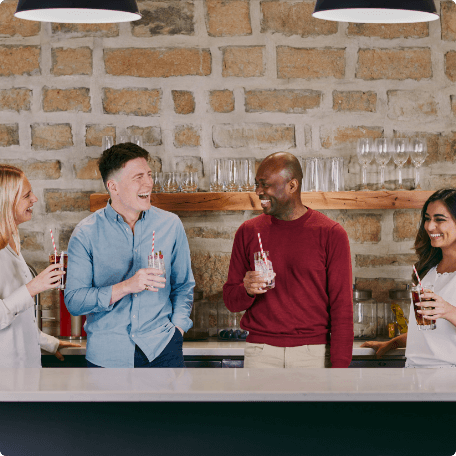The Plastic Problem in the Beverage Industry
Posted in Sustainability
We can’t always have our soda and drink it
At least that’s what the consequences of plastic usage in the beverage industry over the last 50 years have taught us. We’ve heard frightening things in 2019: projections of plastic outnumbering the amount of fish in the sea in the coming years, animals of all kinds ingesting the material and suffering as a result, harmful emissions soaring through increased plastic incineration 1.
This is the price we have paid for the convenience of easy access to drinks no matter where we are in the world.Plastic is still the most efficient packaging material, both in terms of cost and in the time taken to manufacture them. They’re lighter than other materials too, and space-efficient so more can be packed into warehouses at any one time 2. Nevertheless, it has become apparent to us all that the scales have tipped in favour of reform in order to ensure a sustainable future.
Before discussing what can be done, we need to address the beverage industry contribution to plastic pollution. The sector is by no means the only one responsible for the ever-mounting debris but in order to evolve, we must first be accountable. Millions upon millions of tonnes of single-use plastic bottles are produced every year containing our favourite still and carbonated beverages 3.
A large number of these bottles are not properly disposed of and so end up in landfill, littering kerbsides, and in waterways. Even worse, only a tiny proportion of bottles disposed of for recycling are actually recycled (many UK councils are opting for incineration to lessen the need to ship waste overseas for sorting. An even smaller percentage is actually fed back into the beverage industry 4.
Why? Because it causes problems for carbonated beverages 5. Put simply, virgin (new) plastic is already porous meaning that CO2 leaks out of the headspace of sealed beverages over time and eventually becomes flat, establishing what is known as the carbonation shelf life 6. Adding recycled plastic into the mix exacerbates carbonation loss because of structural imperfections, an inevitability when mixing non-homogenous materials (virgin and recycled) together.
Many beverage industries can comfortably guarantee a switch to recycled plastic PET bottles for still drinks such as water and juice because it won’t affect their quality, but alternatives are needed for carbonated drinks to maintain the standards we have come to expect from major brands globally.
Some initiatives we have seen from the likes of Coca-Cola, PepsiCo, Danone, and Nestle include establishing sustainability policies that promise innovation in the direction of less plastic use and greater resources that support reusability 7. There have also been massive clean-up operations upon land and sea by employees, volunteers, and members of local communities, all pitching in to collect as much plastic bottles (among other non-biodegradable trash) to be responsibly disposed of 8.
Moves towards using cans and glass packaging by some of the bigger players, along with an increasing number of start-ups, is evident judging by the changing shape of our supermarket shelves. However,the cost of using these materials for new products and the price-tag accompanying switching plastic-packaged drinks into a new format create an enormous cost-pressure for the wider industry when logistics, supply chain, and sourcing new materials is also taken into consideration 9.
Until new revolutionary technology, like degradable or compostable materials, is in place worldwide it would seem that plastic isn’t going anywhere. There is another option however, one that can reduce if not eliminate plastic consumption in the beverage industry: light-weighting.
Essentially, this is the practice of manufacturing thinner plastic bottles which will biodegrade quicker and use less raw materials. Doing this creates a similar problem to using recycled plastic however, as the integrity of the PET walls of bottles is compromised and reduces carbonation shelf life.
This is where we can help. CO2Sustain is able to retain CO2 on consumed carbonated drinks with non-ionic surfactant technology, making drinks fizzier and for longer. Therefore, beverage businesses are free to produce drinks that use less plastic whilst maintaining the carbonation shelf life standard. With no impact on taste or appearance, this non-silicone processing aid has the potential to contribute to massive waste reductions globally which is huge news!
CO2Sustain was created to support the beverage industry and improve the consumer experience, but this doesn’t stop with taste and mouthfeel, we want to support sustainability innovation and provide drinks brands with that little extra breathing room to find the best planet-friendly solutions that also work for them.
It’s amazing what can be achieved with collaboration and a few bright sparks to lead us forward, so we are confident that by maximising the resources available to us the beverage industry can effectively tackle plastic pollution and provide a brighter future for all of us.
If you’re interested in working with us to further your brand’s sustainability journey or are wanting to take your first step in doing your bit as a business for the environment, then get in touch. Email us info@co2sustain.com




